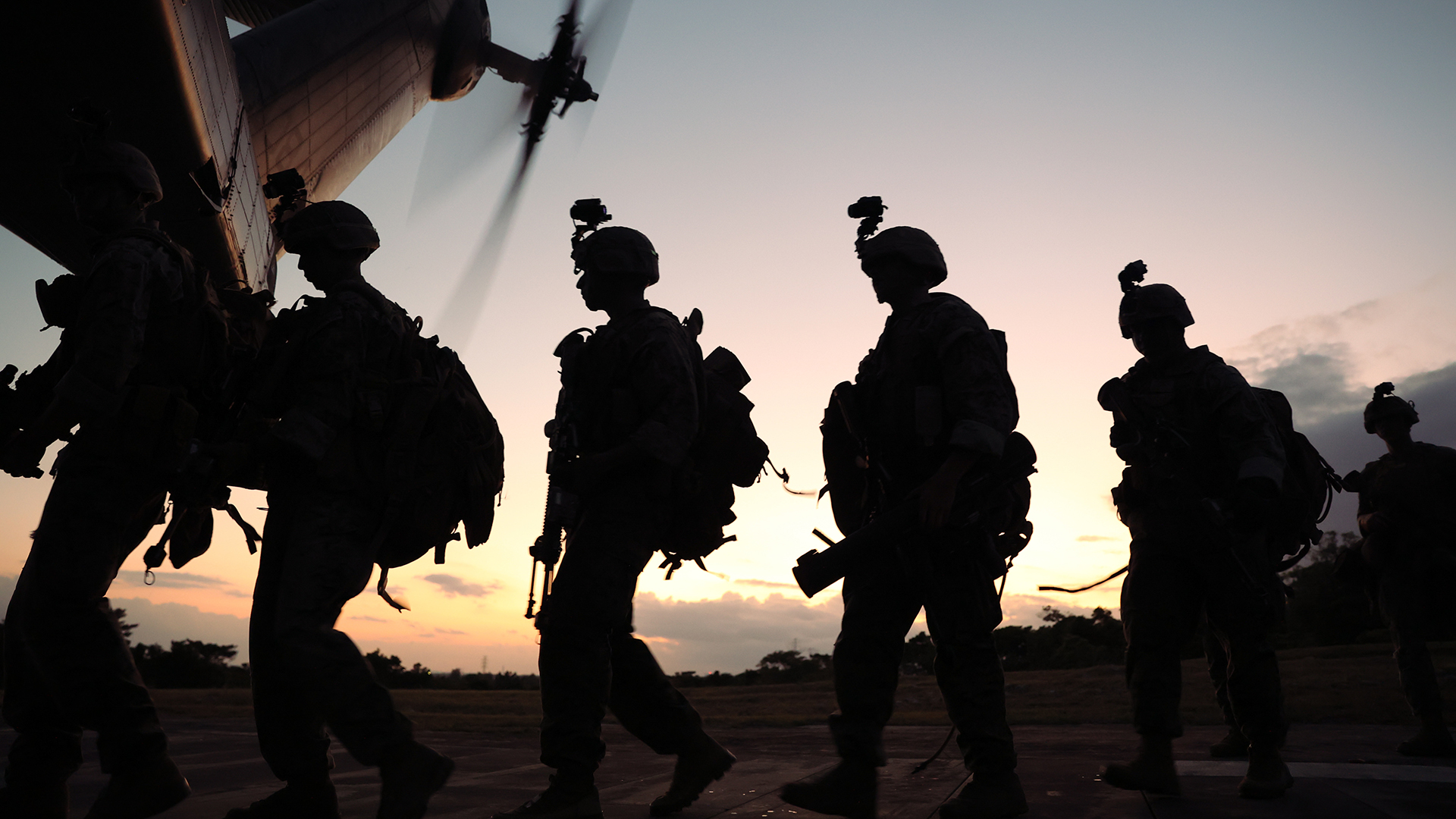

The Pentagon will consider recommending upgrades to the discharges of about 2,000 service members who were separated under the now defunct “Don’t Ask, Don’t Tell” law, defense officials said.
The decision to review those discharges was announced on Wednesday, which marked the 12th anniversary of the end of “Don’t Ask, Don’t Tell,” which prevented gay and lesbian troops from serving openly and was in effect from Feb. 28, 1994 to Sept. 20, 2011.
A panel will examine the personnel records of service members who were separated under “Don’t Ask, Don’t Tell” due to their sexual orientation and received a discharge with a characterization that was less than honorable, a defense official told reporters on Wednesday.
Based on current Defense Department policy, the panel will recommend to the service secretaries whether any of the service members separated under the “Don’t Ask, Don’t Tell,” should have their discharge status upgraded, the defense official said.
For now, the review will not look at the records of gay and lesbian troops separated due their sexuality before “Don’t Ask, Don’t Tell” took effect, including the 19,365 service members separated between 1980 and 1993, defense officials said.
It is unclear how long the review will last. Some of the records the panel will look at may be stored at the National Archives in St. Louis, the defense official said.
Subscribe to Task & Purpose Today. Get the latest military news and culture in your inbox daily.
Officials said a blanket upgrade to all troops separated under “Don’t Ask, Don’t Tell” is not a workable solution. There could be cases, officials said, in which a service member may have been separated for his or her sexual orientation but could have received a less than honorable discharge because of genuine misconduct.
However, officials said they are considering a review of personnel records for gay and lesbian troops separated prior to 1993. By publicizing this review, the Pentagon hopes other service members who feel they were separated solely due to their sexual orientation come forward and ask to have their military records upgraded.
The Defense Department has posted on its website resources for gay and lesbian service members who were discharged under less than honorable conditions and want to correct their military records. The Pentagon also will produce podcasts and webinars about navigating the military department review boards, the defense official said.
Defense Secretary Lloyd Austin issued a statement on Wednesday encouraging gay and lesbian troops who were separated due their sexuality to seek a correction of their military records.
“For decades, our LGBTQ+ Service members were forced to hide or were prevented from serving altogether,” Austin said. “Even still, they selflessly put themselves in harm’s way for the good of our country and the American people. Unfortunately, too many of them were discharged from the military based on their sexual orientation – and for many this left them without access to the benefits and services they earned.”
Out in National Security, an advocacy group for gay, lesbian, and transgender professionals in the national security community, praised the Defense Department’s review of service records of troops separated under “Don’t Ask, Don’t Tell,” said the group’s CEO Lucas Schleusener.
Hopefully, the review will provide a template for allowing all gay, lesbian, and transgender veterans who deserve upgrades to their discharges to finally receive the benefits they have earned from the Department of Veterans Affairs, Schleusener told Task & Purpose.
“We welcome this effort by the Department to begin a process to recognize the bureaucratic violence done to tens of thousands of Americans,” Schleusener said. “The Secretary and the Department have the power to upgrade discharges as a class. Lifting the burden off the backs of veterans who previously had to seek relief as individuals is overdue.”
Because same-sex sexual activity was criminalized and deemed incompatible with military service for so many years, upgrading discharges for gay and lesbian veterans has proven to be extremely difficult, said Peter Perkowski, legal and policy director for Minority of Veterans America.
When “Don’t’ Ask, Don’t Tell” was in effect, commanders would use the military’s criminal justice system to discipline and even court-martial gay and lesbian troops on the pretext of alleged misconduct, Perkowski told Task & Purpose. As a result, military boards have denied requests from those service members to upgrade their records.
“Some of these records don’t show a discharge due to sexual orientation,” Perkowski said. “They show a discharge due to misconduct, and those haven’t been easy to upgrade at all because there’s no proof that there was a ‘Don’t Ask, Don’t Tell’ issue.”
Perkowski said he represents several clients who are struggling to have their military records corrected because boards have not recognized that gay and lesbian troops were treated unfairly while in uniform.
He also said that the number of troops separated due to their sexual orientation under “Don’t Ask, Don’t Tell” is likely much higher than 2,000.
“It’s great that they’re looking at discharges, but in my mind, a lot of the easy ones have already gone through,” Perkowski said. “It’s the hard ones that we’re still trying to solve.”
The latest on Task & Purpose
- How a Native Alaskan became a legendary Navy SEAL
- Military secrets leaked on ‘War Thunder’ forums yet again
- US Navy decommissions another littoral combat ship, the USS Milwaukee
- Who will be the president’s top military adviser after Gen. Milley retires?
4,500 3rd Infantry Division soldiers deploying to Eastern Europe